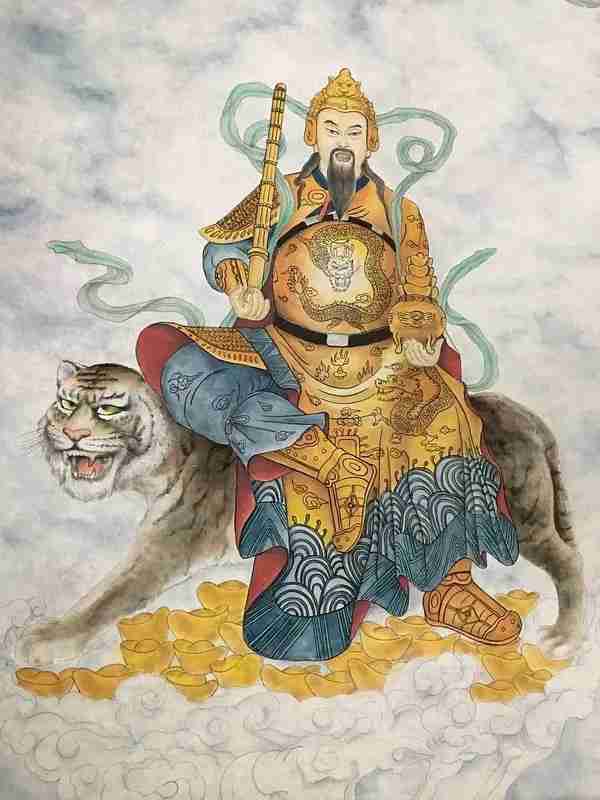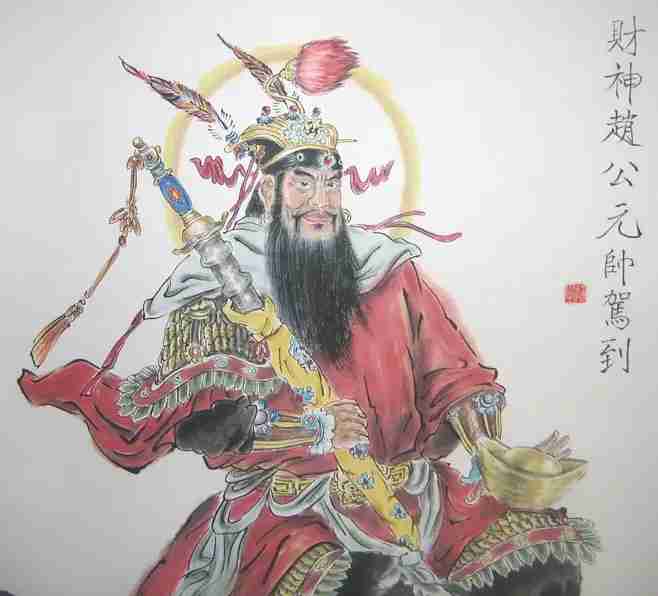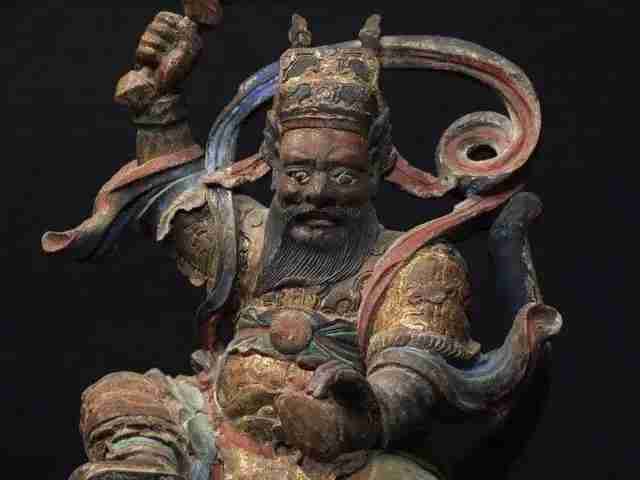Despite the writing culture of the Chinese people, there are plenty of misconceptions regarding their mythology. They have a long history of mythological figures and legends steeped throughout thousands of years, many passed through oral traditions and later written; Caishen being one of these figures.
What is Caishen?

Also referred to as the God of Wealth, Caishen is a mythological figure that originates from Taoism and Chinese folk religions. He is also referred to as Cai Boxing Jun in folk tales, and many stories involve him gifting his riches to his devotees. Many folk stories also identify him with several historical people as he appears in different forms, such as Bi Gan, Fan Li, Zhao Gong Yuanshuai (Lord Zhao the Marshal), and Zhao Gongming.
During the two-week celebrations of the Chinese New Year, people burn incense in his temples to invoke his name, as well as send the traditional Chinese greeting of “Gongxi facai”, which means ‘May you become rich”. He is also venerated in Buddhism circles, with many esoteric Buddhist schools of thought referring to him as Jambhala.
When did Caishen’s origins begin?

The origins of Caishen are unclear, but the earliest record is in the novel Fengshen Yanyi from the Ming dynasty. The story tells of Zhao Gongming, a hermit that used magic to support the Shang dynasty that was collapsing in the 12th Century BCE.
During this time, a supporter of the Zhou dynasty clan, whose name was Jiang Ziya, made a straw doll of the hermit, made incantations for 20 days, and then shot the doll’s heart with an arrow made from the wood of a peach tree, making Zhao Gongming fall ill and dying. This was not without its consequences – Jiang Ziya was rebuked when he visited the temple of Yuan Shi later on, and his punishment was to carry the corpse to this temple, apologize for the action, promote the hermit’s virtue, and canonize him as Caishen.
There is an additional account as well, which states that Caishen was Bi Gan, a man who was sentenced to death by the order of the last Shang emperor Zhou Xin. The reason was that the emperor was angry that his relative was criticizing his choices, and his wife and son had to escape after his death. His execution also led to the ending of the Shang dynasty.
Different forms of Caishen

Different regions of China refer to Caishen using different titles that mean different things, though all his names are forms of attracting wealth. These titles are:
- North – He is referred to as Yao Shao Si, meaning ‘God of Profitability’
- South – His name is Chen Jiu Gong, meaning ‘God of Attracting Wealth’.
- East – His name is Xiao Sheng, meaning ‘God of Collecting Treasures’
- West – His name is Cao Bao, meaning ‘God of Collecting valuables’
- Center – His name is Zhao Gong Ming, meaning ‘Military God of Wealth’
- South-West – His name is Liu Hai, meaning ‘The God of Luck’
- South-East – His name is Han Xin Ye, meaning ‘The God of Gambling’
- North-West – His name is Tao Zhugong, meaning ‘Civil God of Wealth’
- North-East – His name is Shen Wanshan, meaning “God of Gold’.
Conclusion
There are several stories about the origins of Caishen, but most spring in the years of the 12th Century BCE. Today, he is venerated during the Chinese New Year celebrations as a God of wealth, and he also sometimes appears as a door god in Taoist and Chinese temples.
Wao
Really love Chinese people
Interesting story about God of wealth